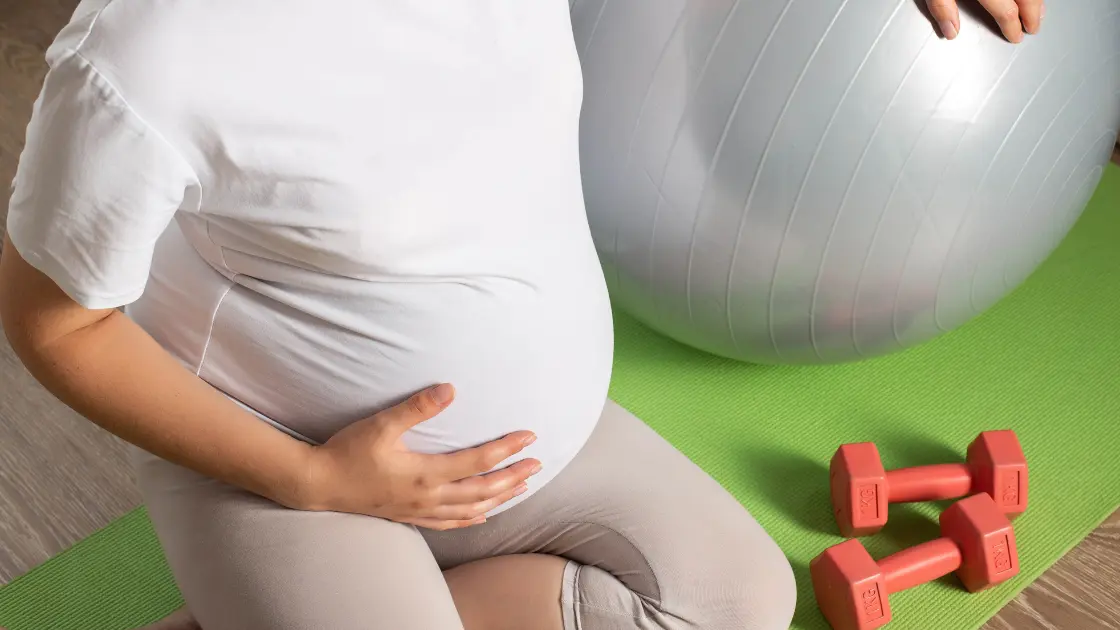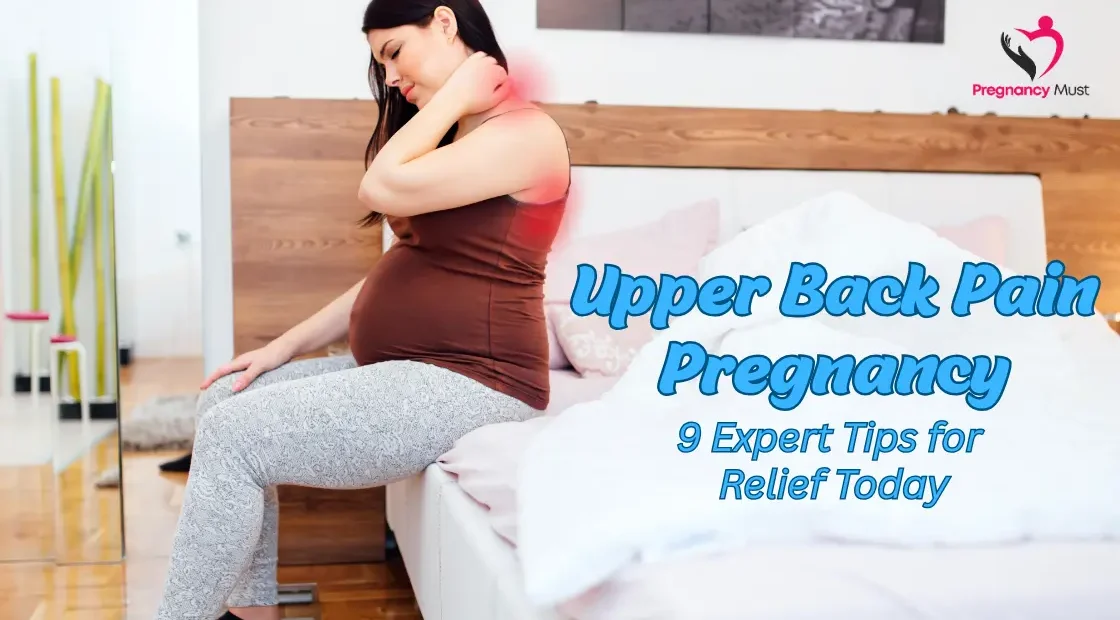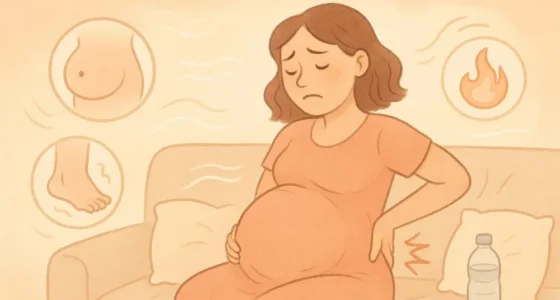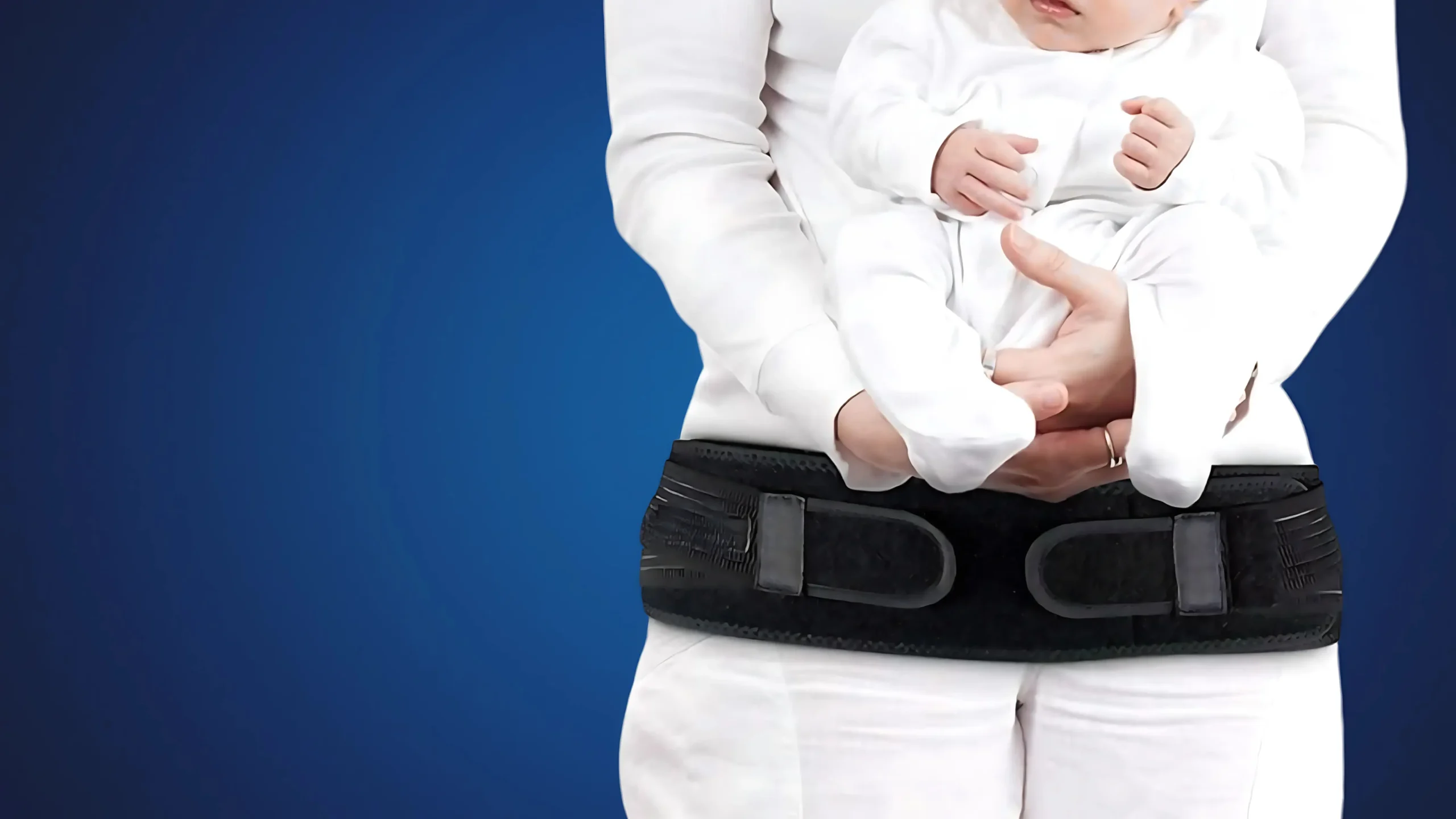Upper back pain pregnancy symptoms can feel overwhelming, especially when your body is already going through so much. It’s not just you—many women experience upper back pain in pregnancy due to physical and hormonal changes.
Table of Contents
- What Causes Upper Back Pain in Pregnancy?
- Is Upper Back Pain Normal During Pregnancy?
- Upper Back Pain and Pregnancy: Risk Factors
- Upper Back Pain in Early Pregnancy
- Upper Back Pain Pregnancy First Trimester
- Upper Back Pain Pregnancy Third Trimester
- How to Relieve Upper Back Pain During Pregnancy
- Pregnancy Upper Back Pain vs. Other Conditions
- Can Exercise Help Upper Back Pain During Pregnancy?
- Upper Back Pain Pregnancy: 3rd Trimester Tips
- FAQ: Upper Back Pain Pregnancy
- Conclusion: Upper Back Pain Pregnancy
What Causes Upper Back Pain in Pregnancy?
Upper back pain in pregnancy is often due to your changing posture, added weight, and shifting center of gravity. As your belly grows, your spine adjusts to support the extra weight.
Hormonal Changes and Muscle Stress
- Relaxin hormone loosens ligaments, reducing spinal support. This hormone prepares your body for childbirth by softening the joints and pelvis, but it also decreases stability in your spine. As a result, your upper back muscles must work harder to keep you upright, leading to soreness and strain.
- Muscle fatigue due to altered posture. As your center of gravity shifts forward during pregnancy, your upper back compensates to keep you balanced. This constant muscle engagement can lead to fatigue, tightness, and even spasms if not managed with rest and proper alignment.
- Poor ergonomic support while sleeping or sitting. Using unsupportive chairs, couches, or pillows can cause your spine to curve unnaturally, especially as your pregnancy progresses. This added pressure on the thoracic spine contributes to upper back discomfort and stiffness over time.
Posture Shift
As your uterus expands, it pulls your body forward. This shift strains the muscles in the upper back and neck, often causing upper back pain during pregnancy.
Is Upper Back Pain Normal During Pregnancy?

Yes, especially in the second and third trimesters. But if it worsens suddenly, spreads, or is accompanied by fever or numbness, consult your doctor immediately.
When to Worry
- Severe pain that doesn’t ease. If your upper back pain becomes constant or unbearable despite rest, posture correction, or gentle movement, it could signal a deeper issue such as a pinched nerve or inflammation that requires medical evaluation.
- Pain with fever or weakness. This combination may indicate an underlying infection or more serious health issue, such as a kidney or spinal infection, which can become dangerous if left untreated.
- Sharp, stabbing sensations. Sudden, intense pains that feel like stabbing or electrical shocks could be signs of nerve compression, muscle spasms, or even gallbladder or lung-related issues and should not be ignored.
Upper Back Pain and Pregnancy: Risk Factors
Certain conditions and habits can make you more likely to experience discomfort. Your risk increases if:
- You have a sedentary lifestyle. Lack of movement weakens core and back muscles, making it harder for your body to support your growing belly. This increases stress on the upper spine and muscles.
- Carry multiple babies. With twins or more, the added weight and abdominal expansion can cause faster shifts in posture and spinal strain, leading to more severe back pain earlier in pregnancy.
- Have pre-existing spinal issues. Conditions like scoliosis, herniated discs, or past injuries can worsen with the physical demands of pregnancy, leading to increased upper back discomfort.
- Gain excess pregnancy weight. Extra pounds add pressure on your spine and muscles, altering posture and balance. This amplifies muscle fatigue and pain in the upper back and shoulders.
Upper Back Pain in Early Pregnancy
Though less common, upper back pain in early pregnancy may occur due to hormonal shifts and poor sleeping posture.
Symptoms to Watch
- Stiffness after waking up. This may happen because your body remains in one position for several hours during sleep, causing tightness in the muscles supporting your upper spine. As pregnancy progresses, less movement during the night and pressure from improper sleep posture can amplify this stiffness.
- Mild but persistent pain after long hours of sitting. Extended sitting, especially without good back support, can cause your upper back muscles to tighten and fatigue. Over time, poor circulation and postural strain in a seated position may turn into a dull, nagging ache that lasts throughout the day.
Upper Back Pain Pregnancy First Trimester
During the first trimester, upper back discomfort may be linked to several physiological and emotional factors as your body begins to adjust to pregnancy:
- Implantation-related changes. As the fertilized egg attaches to the uterine lining, hormonal shifts begin. These early hormonal fluctuations can cause systemic changes, including increased sensitivity in muscles and joints, potentially contributing to upper back discomfort.
- Breast enlargement straining upper thoracic area. Rapid breast growth due to hormonal changes can increase the load on your upper chest and shoulders. This extra weight pulls on your upper spine and muscles, causing tension and pain in the thoracic region.
- Anxiety-related muscle tightness. The emotional stress of early pregnancy can lead to involuntary muscle clenching, especially in the shoulders and upper back. Over time, this tension can accumulate and result in chronic discomfort or spasms.
Upper Back Pain Pregnancy Third Trimester
Upper back pain pregnancy third trimester becomes more common due to the baby’s weight and the compression of nerves. This is when good posture and relief strategies are essential.
What Makes 3rd Trimester Pain Worse?
- Baby’s growth curve peaks. During the third trimester your baby grows rapidly and your abdominal pressure pushes more against your spine. This extra stress can force your upper back to work overtime to maintain your posture and balance, causing exhaustion and soreness a lot of times.
- Increased spinal curvature. As your belly expands and your center of gravity changes, the muscles in your spine naturally arch more to adjust. This exaggerated curvature, especially in the lower and upper spine, puts strain on surrounding muscles and can cause persistent upper back pain.
- Longer sleep durations on one side. Pregnant women are often advised to sleep on their sides, particularly the left. While beneficial for circulation, maintaining one position for extended hours can cause muscle tension and joint stiffness in the upper back and shoulders.
How to Relieve Upper Back Pain During Pregnancy

Wondering how to relieve upper back pain during pregnancy without medication? Here are expert tips:
1. Correct Your Posture
Maintaining good posture helps ease muscle strain on your upper back. Stand tall with your shoulders back and your ears aligned with your shoulders. Using pregnancy support belts can reduce spinal pressure and offer stability. Always be mindful of how you sit—avoid slouching at your desk or couch as it puts extra pressure on your thoracic spine. Over time, consistent posture correction can reduce chronic pain and improve spinal health during pregnancy.
2. Prenatal Yoga & Stretching
Yoga increases flexibility and also loosens up that upper back area. Consider practicing subtle exercises such as cat-cow poses to mobilize the spine, shoulder blade stretches to release tension, and wall angels to improve both posture and back strength. They also help in better breathing and circulation. Even 10 minutes a day, done regularly, can make a dramatic impact on your pain levels and mental clarity.
3. Hot & Cold Therapy
Heat can ease achy muscles while cold can fight inflammation. Place a hot towel or heating pad to the area of tension for 15 minutes. Use a cold pack in cloth, alternating to reduce swelling and nerve sensitivity. Be cautious with both of these and don’t apply them directly to your skin. Party You’ve probably already realized that having regular therapy treatment can help to prevent a flare-up and make you feel relaxed and restored.
4. Maternity Pillows for Sleep
How you sleep has a lot to do with back pain. Invest in a full-body or C-shaped maternity pillow, for full-body spine support. Sleeping on your side and squeezing a pillow between your knees helps keep your hips and back aligned, which also minimizes upper back stress while you sleep. A good sleep set can improve the quality of sleep, reducing stiffness and soreness in the muscles and help you feel more comfortable overall.
5. Wear Proper Footwear
Your blood pressure can change depending on the shoes you wear more than you might think. Skip the heels, which can throw off your balance and posture. Wear supportive shoes with cushioned soles and good arch support to keep your spine aligned and minimize the burden on your back when you are walking. Pregnancy shoes you wear regularly are great for supporting your entire musculoskeletal system.
6. Massage Therapy
A professional pregnancy massage reduces stress and increases your blood circulation. Look for licensed massage therapists who specializes in caring for pregnant women. “If you have an area where you can work out those knots, that gentle, focused pressure can really release that muscle and you’ll get some pain relief without hurting yourself or your baby.” Massages also can lead to better sleep and reduce the emotional weight of chronic discomfort.
7. Chiropractic Care
Non-invasive spinal adjustments using the Webster Technique, which places physical and chemical balance with the pregnant woman within her pelvic region is what prenatal chiropractic care is about. As always, check with your OB-GYN before scheduling. Whilst a qualified chiropractor may adjust your alignment, take pressure off, and improve posture, especially when belly is getting really big. Routine adjustments could also help to stave off long-term back problems post-childbirth.
8. Use a Supportive Bra
Growing breasts add strain to your upper back. Choose maternity bras with wide straps that distribute weight evenly across your shoulders. Avoid underwires, which may dig into your back or ribs and worsen pain. The right bra can drastically reduce discomfort and prevent long-term shoulder and neck tension.
9. Manage Stress with Breathing Techniques
Stress can tighten upper back muscles. Deep belly breathing calms your nervous system and relieves muscular tension. Try guided meditation apps or prenatal breathing exercises to unwind both physically and emotionally. Here is how incorporating mindful breathing into your daily routine can lower your pain level and bring inner calm.
Pregnancy Upper Back Pain vs. Other Conditions
It’s important to differentiate pregnancy upper back pain from kidney pain or gallbladder issues.
Signs It May Not Be Pregnancy-Related
- Pain on one side only. While typical pregnancy-related back pain tends to be more centralized or symmetrical, pain that occurs only on one side of the upper back may indicate a muscular imbalance or even an issue involving the kidneys, gallbladder, or nerves. It’s important to get it evaluated if it persists or worsens.
- Pain worsens after eating (gallbladder). If you experience upper right back pain after meals—especially fatty foods—it could be related to gallbladder problems. This pain is often sharp and may radiate to the shoulder or upper abdomen, requiring prompt medical attention.
- Burning urination (kidney issue). If your upper back pain is accompanied by painful urination, fever, or frequent bathroom visits, it may be a sign of a kidney infection. This type of pain usually starts in the lower back but can radiate upward and should be addressed immediately.
Can Exercise Help Upper Back Pain During Pregnancy?
Absolutely. Moderate, low-impact exercises help relieve tension and strengthen support muscles.
Best Exercises
- Prenatal swimming. Swimming is one of the best forms of exercise for expectant moms as not only it is designed to hold your weight, but it gives you a full range of motion. The water takes off pressure from your spine and reduces the gravity pressure, allowing for a pain free body, without strain on your joints.
- Stationary cycling. Using a stationary bike allows you to stay active without the risk of falling. It improves circulation, strengthens your legs and back muscles, and helps maintain endurance—all of which support better spinal posture and reduce back discomfort.
- Stretch bands for arms and back. Resistance bands are great tools for gentle muscle strengthening. Spend time on exercises that target your upper back and shoulders (to help your posture and stress levels). It is wise to use light resistance and slow movements to prevent overstretching.
Upper Back Pain Pregnancy: 3rd Trimester Tips

Here’s how to navigate the lead up to your due date with a mixture of physical awareness, supportive tools and relaxation techniques that can make a significant difference to your daily comfort.
- Use ergonomic furniture. Pick chairs and cushions that help maintain the curve of your spine. Sitting on hard, elevated surfaces with lumbar support, lowers the unnecessary fetal pressure that causes strain on the back and promote healthier posture.
- Take frequent breaks from sitting. Stand up, stretch, and move around every 30 to 60 minutes. This boosts circulation, prevents muscle stiffness, and helps reduce tension building up in your upper back and shoulders.
- Practice breathing and mindfulness. Taking deep breaths can help you let go of physical tension and soothe your nervous system. Mindfullness techniques like body scans or gentle prenatal meditations can help decrease the experience of pain and facilitate relaxation.
When to See a Doctor
While many cases of upper back pain in pregnancy are normal, some signs should never be ignored. Seek medical advice If:
- Pain limits movement. If your pain becomes so bad that you’re unable to walk, turn around, or engage in everyday activities, it could be indicative of an underlying problem such as a pinched nerve or muscle injury.
- You experience tingling or numbness. Numbness or a pins-and-needles sensation in your arms, shoulders, or upper back may indicate nerve compression and requires prompt medical evaluation.
- Suddenly the pain is much worse. A sudden severe upper back pain can be a potentially serious condition, which may indicate gallbladder inflammation, vertebral dislocation, or even just a growing infection.
FAQ: Upper Back Pain Pregnancy
Q: Is upper back pain in pregnancy dangerous?
A: No, but sudden or intense pain should be evaluated by a doctor.
Q: What trimester is upper back pain most common in?
A: Most of my patients experience this in the third trimester because of the additional weight and strain on the spine.
Q: Can sleeping position cause upper back pain during pregnancy?
A: Yes, lack of proper support while sleeping or overuse of muscules can cause stiffness and even pain.
Q: How long does upper back pain last in pregnancy?
A: It may last a few days or continue into the postpartum period if not managed properly.
Q: Is it okay to use pain relief creams during pregnancy?
A: First and foremost, you should check with your doctor before treating pain with any cream.
Conclusion: Upper Back Pain Pregnancy
Keep informed, keep supported, and don’t ever hesitate to seek professional help for upper back pain pregnancy concerns. Take care of yourself first, and you will be stronger during your pregnancy!
Explore more on Pregnancy Must –









